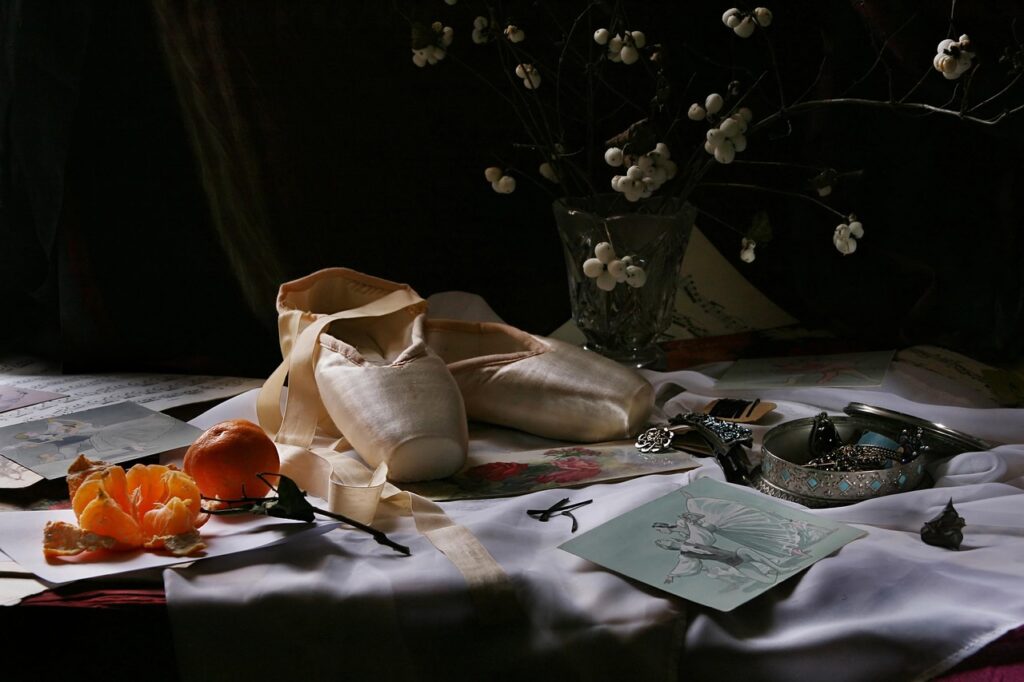Per questo film invece ci vuole un po’ più di stomaco, ma è una delle piccole cinematografiche drammatiche e che tratta di psicologia che preferisco. Ho avuto il coraggio di vederlo una volta sola perché per me è molto toccante.
“Il Cigno Nero” diretto da Darren Aronofsky nel 2010, con un’incredibile interpretazione di Natalie Portman, che le è valso un meritatissimo Oscar, affiancata da un suggestivo Vincent Cassel.
La tematica principale trattata è la relazione viscerale tra la protagonista e la madre narcisista e ipercontrollante, che non permette a Nina di crescere e di diventare adulta e indipendente.
Pur essendo ormai più che adolescente la madre tratta la figlia ballerina ancora come una bambina, così quando si affaccia al mondo del maschile e in particolare del suo seducente maestro di ballo Thomas ne ha paura.
E’ molto chiaro che la protagonista non ha un padre e che vive l’avvicinamento del suo insegnante come l’opportunità di farsi sentire apprezzata da una figura paterna completamente assente.
Generalmente ogni bambina vede nel padre il suo primo amore, qualcuno con cui condividere e dal quale sentirsi valorizzata, per Nina invece c’è solo un incontro sempre più ravvicinato con le sue ombre.
La madre è ossessiva, ma non le permette di essere libera, il maestro per il quale sviluppa un’infatuazione, incarna il padre che non ha avuto e che potrà sedurre e conquistare solo diventando il Cigno Nero. La madre vorrebbe che la figlia restasse sempre il suo Cigno Bianco, casta, pura e che non crescesse mai, vorrebbe che obbedisse sempre alla mamma e che soddisfasse ogni sua aspettativa.
Quando incontriamo le nostre ombre è il momento di crescere. Nina comincia un atto di ribellione verso la madre, inizia a uscire con una nuova amica che a tutti gli effetti rappresenta quel Cigno Nero che lei non è, seducente e totalmente sicura si sé. Comincia a scoprire il sesso, ma continua a scontrarsi con le sue insicurezze e la sua bassa autostima, fino ad arrivare all’autolesionismo. Dove una madre narcisista non ti valorizza e ti da imput contrastanti e non ti dona la libertà finisci col sentirti una nullità. Senza un padre che ti aiuta a sviluppare le tue capacità è difficile integrare la propria ombra rappresentata dal Cigno Nero.
Nina si trasformerà di certo nel Cigno Nero, ma senza integrare l’ombra e trovare autostima dentro di sé.
Qui vengono trattate tematiche psicologiche importanti come la dipendenza, il narcisismo, l’anoressia, l’autolesionismo, le ossessioni maniaco compulsive. Tutte tematiche per le quali ci vuole il giusto momento per guardarle in questo film, perché arriva veramente in profondità, creando un profondo senso di angoscia fino alla fine.

“Il Cigno Nero” DVD – Photo@Veru
The Black Swan – An all-female psychology

For this film, however, you need a little more stomach, but it is one of my favorite small dramatic and psychological films. I only had the courage to see it once because for me it is very touching.
“Black Swan” directed by Darren Aronofsky in 2010, with an incredible performance by Natalie Portman, who earned her a well-deserved Oscar, supported by a suggestive Vincent Cassel.
The main theme treated is the visceral relationship between the protagonist and her narcissistic and hyper-controlling mother, who does not allow Nina to grow up and become an adult and independent.
Even though she is now more than a teenager, the mother still treats her daughter, a dancer, like a child, so when she faces the world of men and in particular her seductive dance teacher Thomas she is afraid of him.
It is very clear that the protagonist does not have a father and that she experiences the approach of her teacher as an opportunity to make herself feel appreciated by a completely absent father figure.
Generally, every little girl sees her father as her first love, someone to share with and by whom she feels valued, but for Nina there is only an increasingly close encounter with her shadows.
Her mother is obsessive, but does not allow her to be free, the teacher for whom she develops an infatuation, embodies the father she did not have and who she will be able to seduce and conquer only by becoming the Black Swan. The mother would like her daughter to always remain her White Swan, chaste, pure and never grow up, she would like her to always obey her mother and satisfy her every expectation.
When we meet our shadows it is time to grow up. Nina begins an act of rebellion against her mother, she starts going out with a new friend who in all respects represents that Black Swan that she is not seductive and totally sure of herself. She begins to discover sex, but continues to clash with her insecurities and her low self-esteem, until she reaches self-harm. Where a narcissistic mother does not value you and gives you conflicting input and does not give you freedom you end up feeling like a nobody. Without a father who helps you develop your abilities it is difficult to integrate your shadow represented by the Black Swan.
Nina will certainly transform into the Black Swan, but without integrating the shadow and finding self-esteem within herself.
Here are treated important psychological themes such as addiction, narcissism, anorexia, self-harm, obsessive compulsive. All themes for which it takes the right time to look at them in this film, because it really goes deep, creating a deep sense of anguish until the end.

Photo@Pixabay



No responses yet